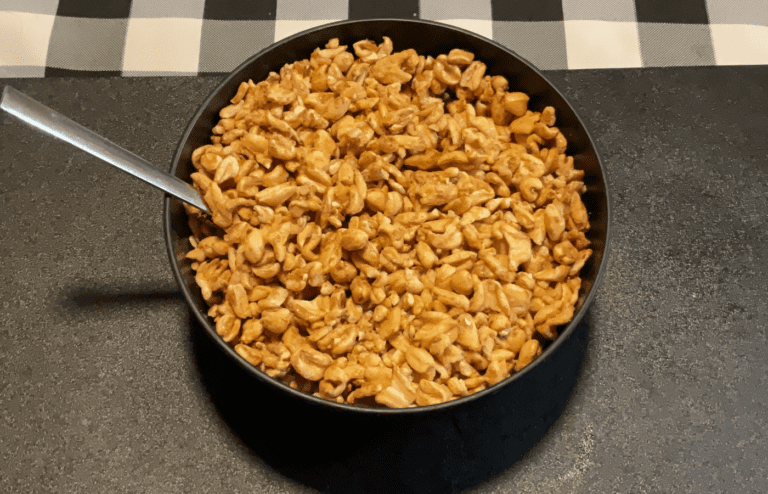The gut microbiome is more than just a collection of bacteria—it’s a key player in overall health. From digestion and immunity to mental well-being and disease prevention, these tiny organisms have a massive impact on the body.
Emerging research continues to reveal just how deeply gut health influences everything from longevity to cancer risk. Whether it’s boosting the immune system, balancing mood, or even affecting weight management, the microbiome plays a crucial role in keeping us healthy. Here are 20 powerful reasons why taking care of your gut is one of the best things you can do for your body and mind.
20. Longevity and Healthy Aging

Research suggests that the gut microbiome plays a crucial role in promoting longevity and healthy aging. Studies have found that a diverse and balanced gut microbiota is associated with improved metabolic health, reduced inflammation, and better cognitive function in older adults. Maintaining a healthy gut microbiome through diet and lifestyle choices may contribute to extending healthspan and improving quality of life as we age.
19. Cancer Risk

Recent research suggests that gut bacteria may influence cancer risk, particularly for colorectal cancer. A study found that certain bacteria, like non-enterotoxigenic Bacteroides fragilis, were elevated in patients with colon polyps. This indicates that gut microbiome composition could be an early indicator of cancer risk, potentially leading to new screening methods.
18. Allergic Reactions

The gut microbiome plays a crucial role in modulating allergic responses. Research shows that a diverse gut microbiota can help prevent food allergies by promoting immune tolerance. Certain beneficial bacteria, like Anaerostipes caccae, have been found to protect against allergic reactions when present in the gut, suggesting potential new treatments for food allergies.
17. Appetite Regulation

Your gut microbiota plays a crucial role in regulating appetite and satiety. Gut bacteria produce metabolites that influence hunger-related hormones and interact with the nervous system to control feelings of fullness. This intricate bacteria-host communication can affect energy balance and food intake, potentially impacting weight management and eating behaviors.
16. Blood Sugar Control

Recent research suggests that gut bacteria play a crucial role in regulating blood glucose levels. Certain bacteria, like Coprococcus, are associated with higher insulin sensitivity, while others, such as Flavonifractor, may contribute to insulin resistance. These findings indicate that modifying gut microbes could potentially improve blood sugar management and prevent diabetes.
15. Neurotransmitter Production

Your gut bacteria play a crucial role in producing neurotransmitters like serotonin, dopamine, and GABA. These chemicals influence mood, cognition, and behavior. Recent studies show that gut microbes not only produce serotonin but also decrease enzymes that break it down, maintaining higher levels in the gut. This impacts immune system balance and overall brain function.
14. Bone Density

Recent research has uncovered a surprising link between gut microbiota and bone health. Specific bacteria, such as Akkermansia and Clostridiales bacterium DTU089, have been associated with lower bone density in older adults. Scientists believe the gut microbiome may influence bone remodeling through immune system responses, potentially offering new avenues for osteoporosis prevention and treatment.
13. Skin Health

The gut microbiome plays a crucial role in maintaining skin health. A balanced gut flora can help prevent skin conditions like acne, eczema, and psoriasis by regulating inflammation and supporting the skin’s barrier function. Gut bacteria also produce beneficial compounds that promote skin hydration and collagen production, potentially slowing down aging processes in the skin.
12. Stress Response

The gut microbiome plays a crucial role in regulating the body’s stress response by interacting with circadian rhythms. Recent research has shown that gut bacteria influence the secretion of stress hormones and affect key stress-responding brain regions throughout the day. This connection opens up possibilities for developing new microbial-based therapies to manage stress-related mental health conditions.
11. Sleep Quality

Recent research reveals that gut microbiome diversity positively correlates with improved sleep efficiency and duration. Specific bacteria like Faecalibacterium prausnitzii are linked to better sleep quality. The gut microbiome may influence sleep regulation through metabolic pathways involving L-arginine, L-tryptophan, and 4-aminobutanoate, offering potential for microbiome-targeted sleep therapies.
10. Aging Process

Recent research suggests that the gut microbiome plays a crucial role in the aging process. Studies have found that older adults with more diverse gut bacteria tend to be healthier and live longer. The microbiome may influence aging by modulating inflammation, metabolism, and immune function. Maintaining a healthy gut microbiome could potentially slow down age-related decline and promote longevity.
9. Cardiovascular Health

Recent studies reveal that gut microbiota play a crucial role in cardiovascular health. Certain gut bacteria have been linked to a lower risk of heart disease, while others contribute to atherosclerosis and hypertension. The gut microbiome influences cholesterol metabolism, inflammation, and blood pressure regulation, directly impacting cardiovascular function and overall heart health.
8. Weight Management

Your gut microbiome plays a crucial role in weight management by influencing metabolism and nutrient absorption. Studies show that certain gut bacteria can affect how efficiently you process calories and store fat. A diverse microbiome is associated with better weight control, while an imbalanced gut flora may contribute to obesity. Manipulating the gut microbiome through diet and probiotics could potentially aid in weight loss efforts.
7. Nutrient Absorption

Your gut microbiome plays a crucial role in nutrient absorption by breaking down complex food molecules that bypass human digestion. Gut bacteria produce enzymes to release nutrients like glucose and short-chain fatty acids. They also synthesize essential vitamins such as B12 and K, and aid in the absorption of minerals like calcium and magnesium, contributing to overall health and potentially slowing the aging process.
6. Hormone Regulation

Your gut microbiome plays a crucial role in regulating hormones, particularly estrogen. The “estrobolome,” a collection of gut bacteria, can metabolize and modulate circulating estrogen levels, impacting weight, libido, and mood. A healthy gut microbiome is essential for maintaining hormonal balance and preventing conditions like estrogen dominance.
5. Brain Function and Cognition

Recent research suggests that the gut microbiome plays a crucial role in cognitive function. A study found that β-diversity, a measure of gut microbial community composition, was significantly associated with various cognitive measures. Specific bacterial genera were also linked to cognitive performance, indicating a potential connection between gut health and brain function.
4. Inflammation Levels

Your gut microbiome plays a crucial role in regulating inflammation throughout the body. A healthy gut flora produces anti-inflammatory compounds like short-chain fatty acids, which help maintain immune balance. Conversely, an imbalanced microbiome can lead to chronic inflammation, potentially contributing to various diseases and accelerated aging. Maintaining a diverse gut ecosystem through diet and lifestyle choices can help keep inflammation in check.
Read More: 15 Natural Ways to Get Rid of Inflammation
3. Digestive Health

Your gut microbiome plays a crucial role in digestive health by breaking down complex carbohydrates, producing essential vitamins, and maintaining intestinal barrier function. A diverse microbiome helps prevent digestive issues like inflammatory bowel disease and irritable bowel syndrome. It also aids in nutrient absorption and regulates bowel movements, contributing to overall digestive wellness.
Read More: 18 Ways to Keep Your Gut Happy This Holiday Season
2. Immune System Function

The gut microbiome plays a crucial role in regulating immune system function. It interacts with immune cells, influencing their development and responses. A diverse microbiome helps maintain a balanced immune system, while imbalances can lead to autoimmune disorders and increased susceptibility to infections. Certain gut bacteria produce compounds that modulate immune responses, highlighting the microbiome’s importance in overall health.
Read More: 10 Foods You Didn’t Know Were Good for Digestion
1. Mood and Mental Health

Recent research reveals a strong connection between gut bacteria and mental well-being. The gut microbiome produces neurotransmitters like serotonin, influencing mood, anxiety, and depression. Imbalances in gut bacteria have been linked to various mental health disorders, highlighting the importance of a healthy gut for psychological wellness.
Read More: 20 Ways to Improve Your Gut Health Naturally








